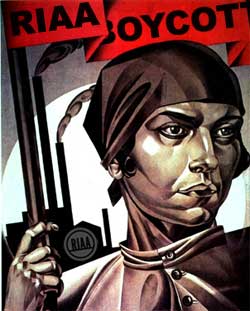
Hollywood
has now managed to absorb on a conscious level that the failure of
fatherhood is a central issue of our culture, and that people are
desperate for stories which address this issue and offer images of
fatherhood redeemed.
It's a
subject that has always attracted Spielberg, at least on an intuitive
level. He's always said that E. T. was about divorce — about the
ways a child scarred by divorce and an absent father can use fantasy to
survive. The knowledge came from his own personal experience with the
phenomenon as a youth.
In War Of the Worlds he takes on the subject from the father's, not the
child's perspective — and that may reflect his own maturity and
experience as a father. It also takes us closer to the crux of the
crisis.
Phenomenally
successful films like The Lion King and The Sixth Sense dealt with
the effect of fatherlessness on sons and, like E. T., offered coping
mechanisms, images of transcendence. War Of the Worlds deals with the
source of the pathology — the emotionally self-indulgent and
incompetent father himself.
As I
say, Hollywood knows the appeal of the subject — one finds it
“layered” into otherwise conventional spectacles like The Day After
Tomorrow, where it has the feel of a perfunctory marketing ploy.
Spielberg, as usual, goes deeper.
Taking
as his model the 50s-era sci-fi film, which exploited our fears of
nuclear holocaust and alien (i. e. Communist) invasion, Spielberg taps
the post-9/11 malaise for the subliminal terror of his tale. Alien
sleeper-cell creatures erupt from within to devastate our civilization,
and in the crisis our assumptions about everything are tested.
For
Spielberg's protagonist, Ray Ferrier, a self-centered lifestyle, in
which he has neglected the children of a failed marriage, who now live
with their mother and her new husband, is shattered when he's forced by
unimaginable disasters to step up to the plate and protect them. And to
protect them, he needs to know them — something he's failed so far to
do.
It's a brilliant scheme, which places Ray's failure as a father center stage, and makes it far more unnerving and devastating
than the lethal space invaders and their horrifying acts.
The
greatness of the film is that it doesn't posit absolute redemption for
Ray — he has lost more through his failure as a father, and his
children have lost more, than his last-minute heroics can ever restore.
But he has come face to face with his failure, and has grown up in the
process — and that is more affecting, more real, than any contrived
feel-good catharsis could ever be.
Ray
remains a tragic figure, a reminder that the true lost souls of
post-WWII America are not the children betrayed by feckless fathers,
but the fathers themselves, who surrendered the deepest meaning of
their lives for a transitory, an illusory freedom.

